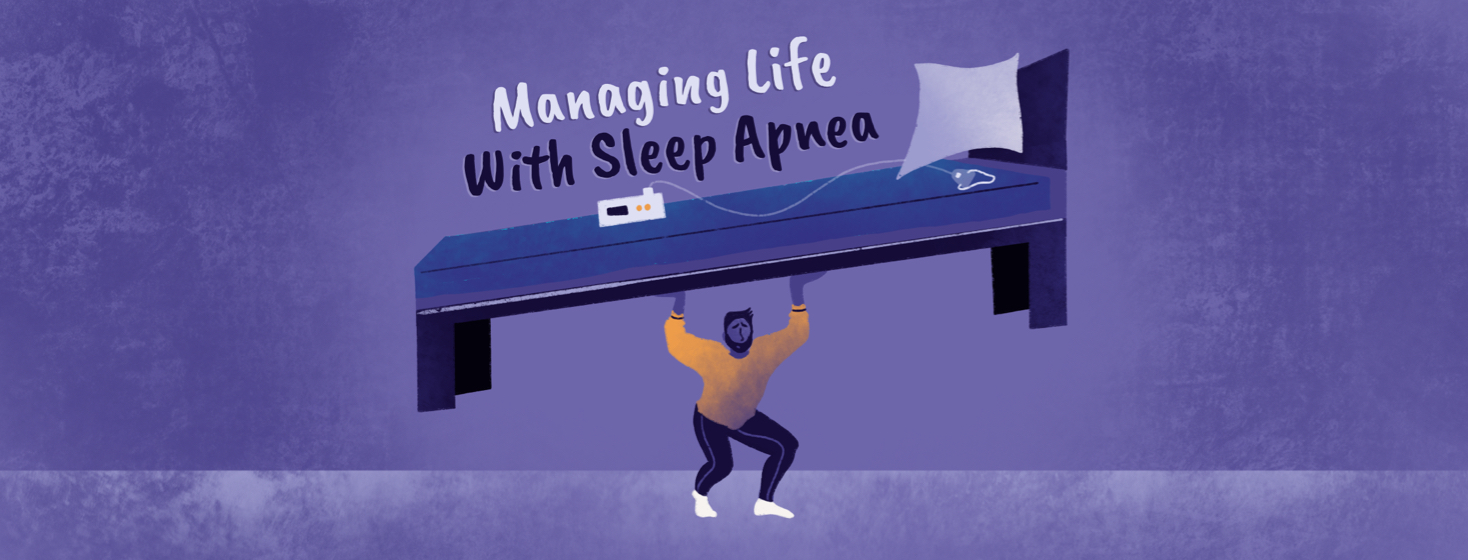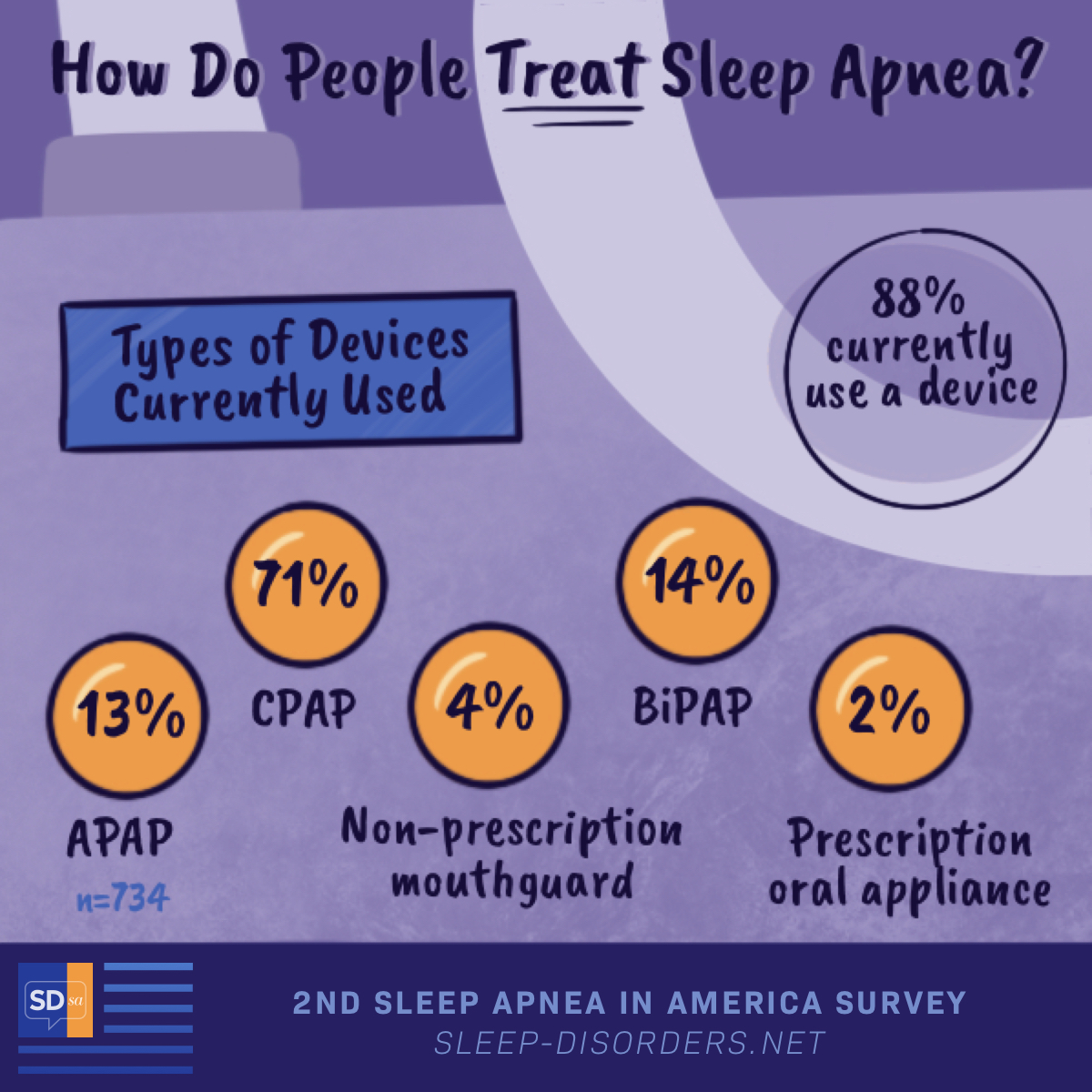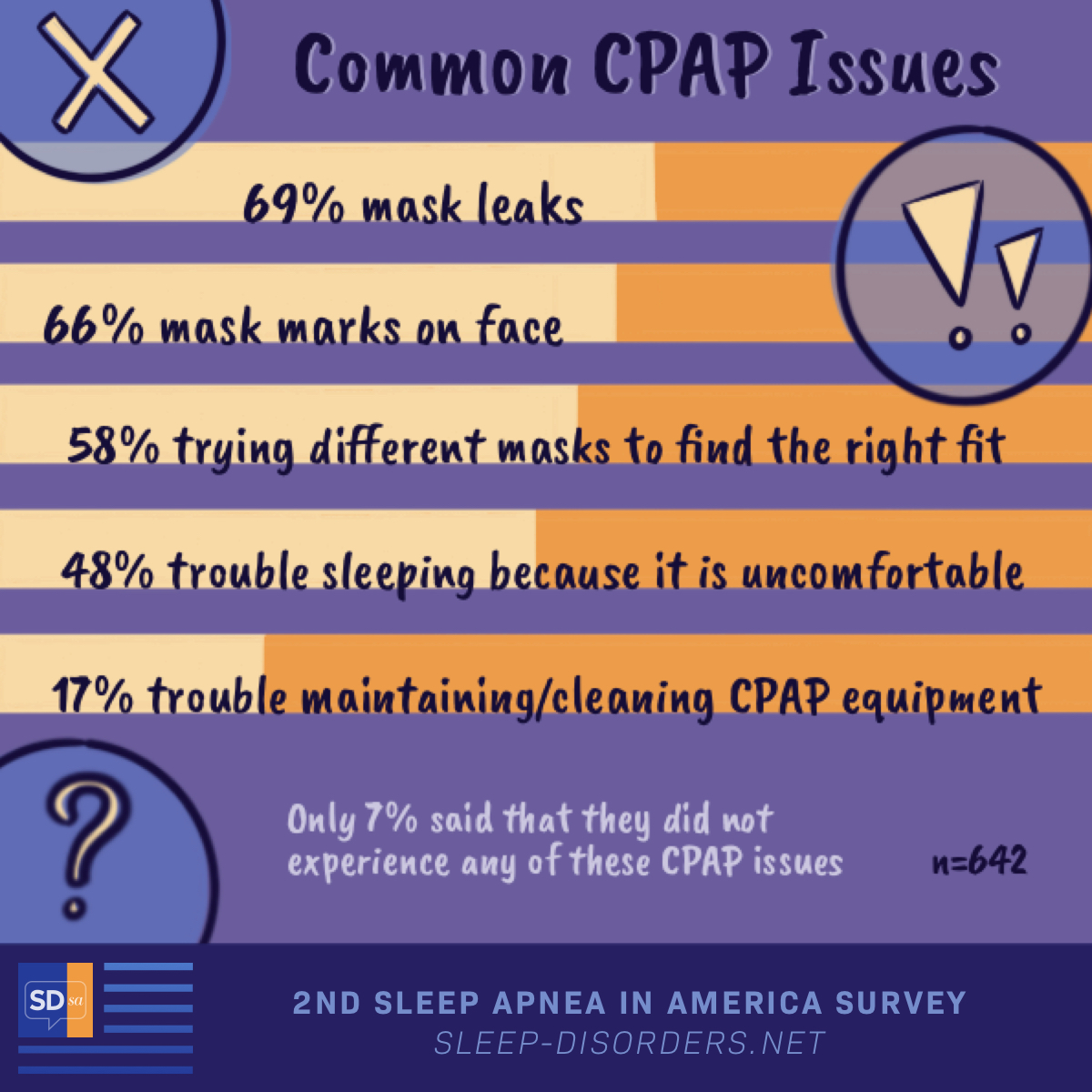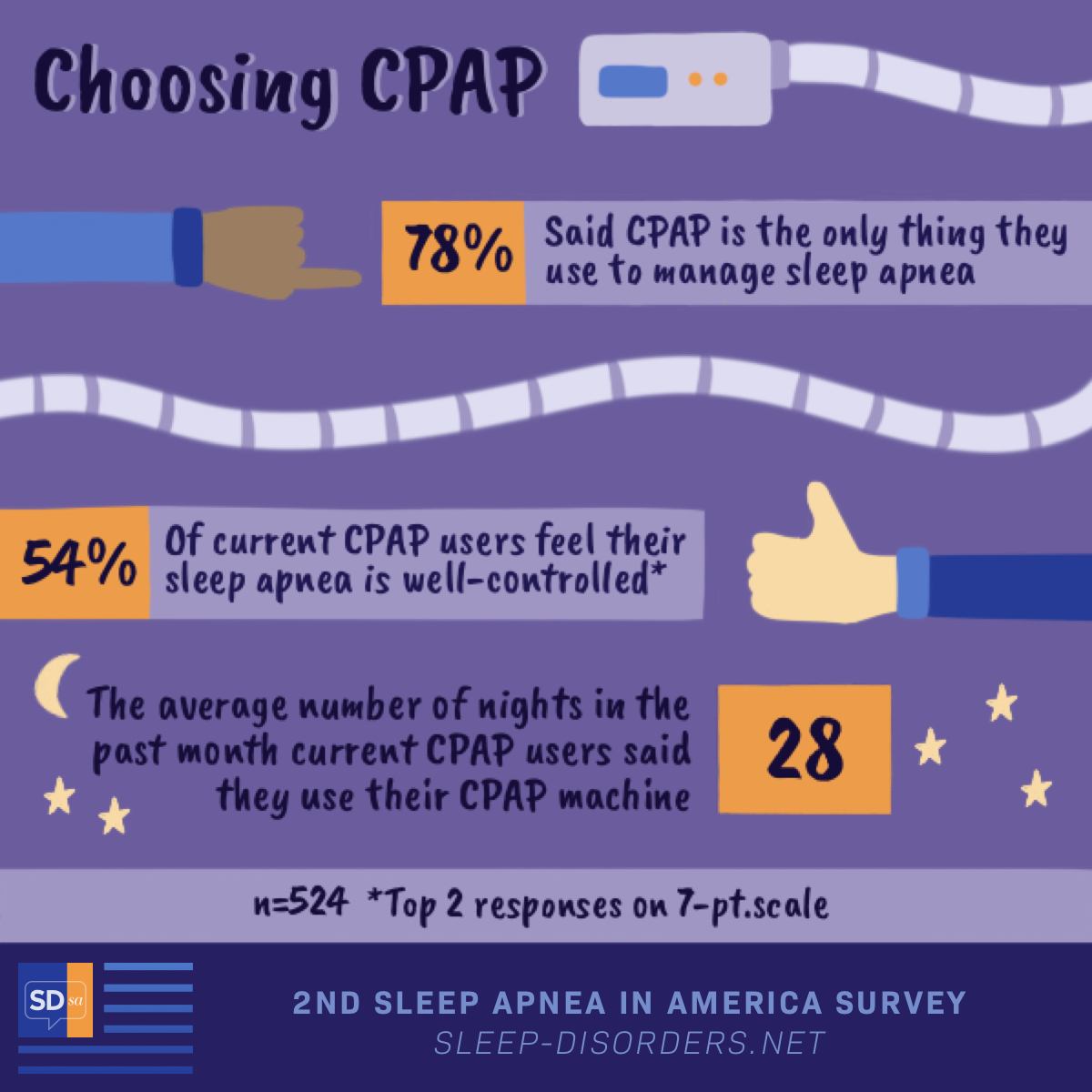The Ups and Downs of Using CPAP Therapy: 2nd Sleep Disorders In America Survey Results
Getting a sleep apnea diagnosis can mean finally getting answers to questions like why do I wake up feeling tired? Why am I sleepy during the day? Is my snoring a sign of something serious?
But once those questions are answered, the big question on your mind might be about what comes next. How exactly is sleep apnea treated?
Most people use a CPAP machine
Most people treat obstructive sleep apnea (OSA) with continuous positive airway pressure (CPAP). A CPAP machine keeps the airway open by gently pushing mild air through a mask that covers the nose or nose and mouth. Doctors typically recommend CPAP as the first thing for people with moderate to severe sleep apnea to try.1
There is a good reason for this, too. CPAP machines are highly effective in treating sleep apnea and are used so often because they are the simplest and most extensively studied treatment option.1
In fact, in our 2nd Sleep Disorders In America Survey, 81 percent of people surveyed who ever used a CPAP were prescribed it at the time they got their diagnosis.
Getting used to CPAP can take time
Even though a lot of people with OSA use a CPAP machine, this does not mean it is an easy therapy for everyone to use right away. Some people take to it with no trouble at all. But for many others, getting used to sleeping with a mask, finding the most comfortable mask, and including CPAP into a nightly sleep routine takes time to figure out. For some people, it is an ongoing struggle.
Sticking with CPAP (even when it is hard)
We know that most people use CPAP therapy to treat their OSA, but do they use it every night? Research shows 20 to 40 percent of people who have a CPAP machine at home stop using it or do not use it every night.1
Not using your CPAP can lead to problems with your insurance company if they require compliance, which many do. But most importantly, not treating your sleep apnea can lead to serious health issues because your body is not getting the oxygen it needs.
If you are having trouble sleeping comfortably with your CPAP, talk to your sleep specialist. They can help with mask issues, review pressure settings, and help you adjust your machine’s comfort settings.
More strategies to manage sleep apnea
Along with using CPAP, some people choose to try other strategies to manage their sleep apnea. We found that 14 percent of surveyed CPAP users also use diet management strategies, and 13 percent include exercise management strategies. Lifestyle changes can reduce sleep apnea severity and help improve overall sleep quality.
Explore CPAP tips and tricks
No one has to go through a sleep apnea journey alone. Many of our community advocates have shared the ups and downs of their CPAP experiences. They write about what feels hard, what motivates them to keep trying, and what advice they have for others who are struggling with CPAP. Some of their articles include:
- The Frustrations of Starting CPAP
- Sometimes You Don't Feel Better With CPAP Treatment
- Living With Sleep Apnea and Not Using a CPAP
- 5 Things I Would Tell Myself Post-Diagnosis
If you would like to learn more about getting the most out of your CPAP, check out our featured collection of tips and tricks for CPAP users.
The 2nd Sleep Disorders In America Survey was conducted online from May 2021 through August 2021. Of the 1,890 people who completed the survey, 734 were sleep apnea respondents
*Top 2 responses on 7-point scale




Join the conversation